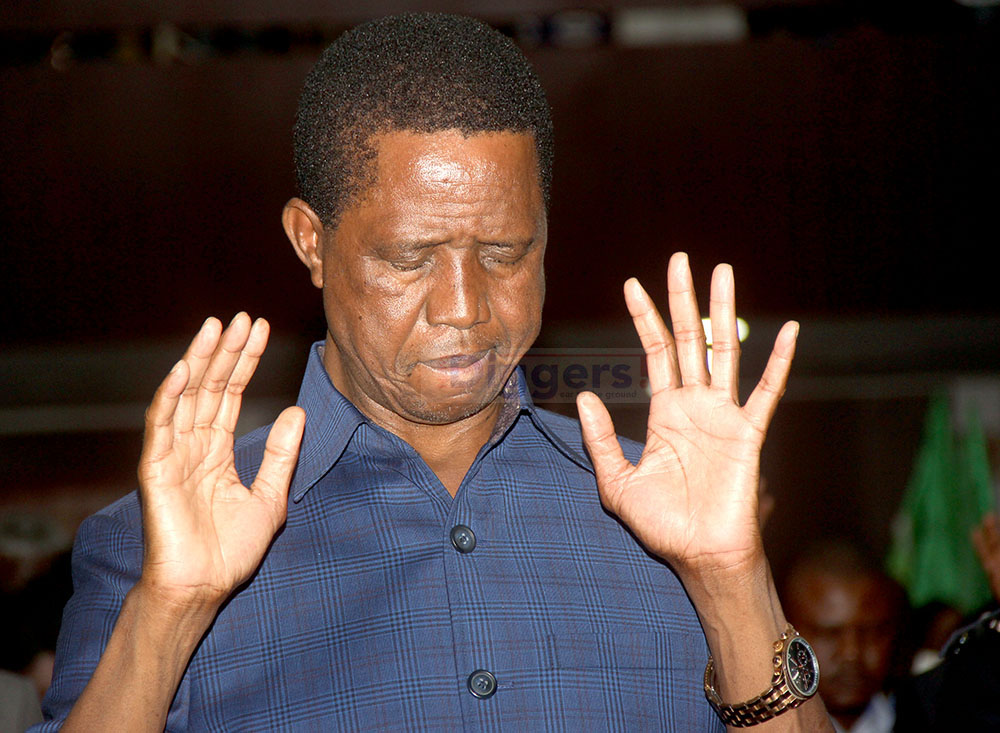The latest COVID-19 speech by Zambia’s President, Edgar Lungu has been a subject of intense criticism after he eased some of the partial lockdown measures.
The part that raised most eyebrows, was where the President allowed for reopening of churches, provided they adhered to safety regulations, such as wearing masks, social-distancing and hand-sanitising, a move that most critics put down to bad advice by those surrounding him.
“I have decided that some activities such as the following may continue being undertaken normally subject to adhering to public health regulations, guidelines and certifications: Places of worship may congregate while observing social distancing, mandatory face masks and sanitizing and hand washing guidelines; sporting activities such as golf and tennis, which do not involve physical contact between players where the sport is played in non-crowded space, can begin to be played but bars in those premises will remain closed; barbershops and salons may continue to operate with strict adherence and observing social distancing and regular sanitizing and hand washing, ”said President Lungu.
Shortly after the address, most residents took to social media to express their disapproval.
“We record the highest COVID-19 cases in 24 hours and reopen churches at the same time? Please reconsider. This is COVID-19!” Aaron Mujajati, a medical doctor, pleaded.
For opposition Movement for Multi-party Democracy (MMD) president, Nevers Mumba, to ask the church to go back to normal services at the height of the pandemic, was as good as leading God’s people to the slaughter house.
“We insist that the government should follow through with the declaration that we are at war, as the President said exactly four weeks ago. We must follow through and do what a nation at war does. Spare no means, shut down, preserve lives at whatever cost,” Mumba, cautioned.
Even though compared to other countries, the number of people infected with the virus, is still relatively low in Zambia, at 88, three of whom are late, the number of infections has continued going up, despite the preventive measures being put in place, including having a partial lockdown for a month now, hence the worry by most, that allowing churches to operate would lead to higher infection rates.
Churches Say No To Public Gatherings
A number of churches responded by discouraging their members from turning up.
The United Church of Zambia leadership issued a statement saying: “worship services, group meetings, holy communion and other activities remained suspended.”
“The mode of offerings and family churches will continue as earlier prescribed. This pandemic further reinforces what scripture has always stated that the church of God has always been the people of God and not the building,” read the statement in part.
“We should hold on for now, because this pandemic is not under control,” said Kangwa Chileshe, a pastor at a Pentecostal church in Lusaka.
“Yes we can sanitise and we should, yes we can observe social distance and we should, we can wear face masks and everything, for now, let’s avoid public gatherings, let’s avoid as much as possible, having church services until that time when this thing is under control,” he added.
President’s Press Office Reacts To Criticism
Following the negative reactions, the President’s Press and Public Relations Office, issued a statement, saying the Head of State did not actually order churches to open, but merely gave an option for congregants to meet if they so wished, as long as they followed the health guidelines.
“This means that the President is not directing churches, rather he is giving those who still want to congregate during this period an option. Those who do not want to do so are free not to go to church.
Therefore, it is misleading to say President Lungu has ‘directed’ as some people are inferring because President Lungu cannot direct anyone to go to church or indeed to open the churches. He, in the first place, did not close any church but individual churches opted to do so due to the COVID-19 pandemic.
Even now, churches are free to open or not to open their places of worship,” read part of the statement.
Still, some critics feel this did not clarify the issue, but created more confusion.
Source: Africafeeds.com



